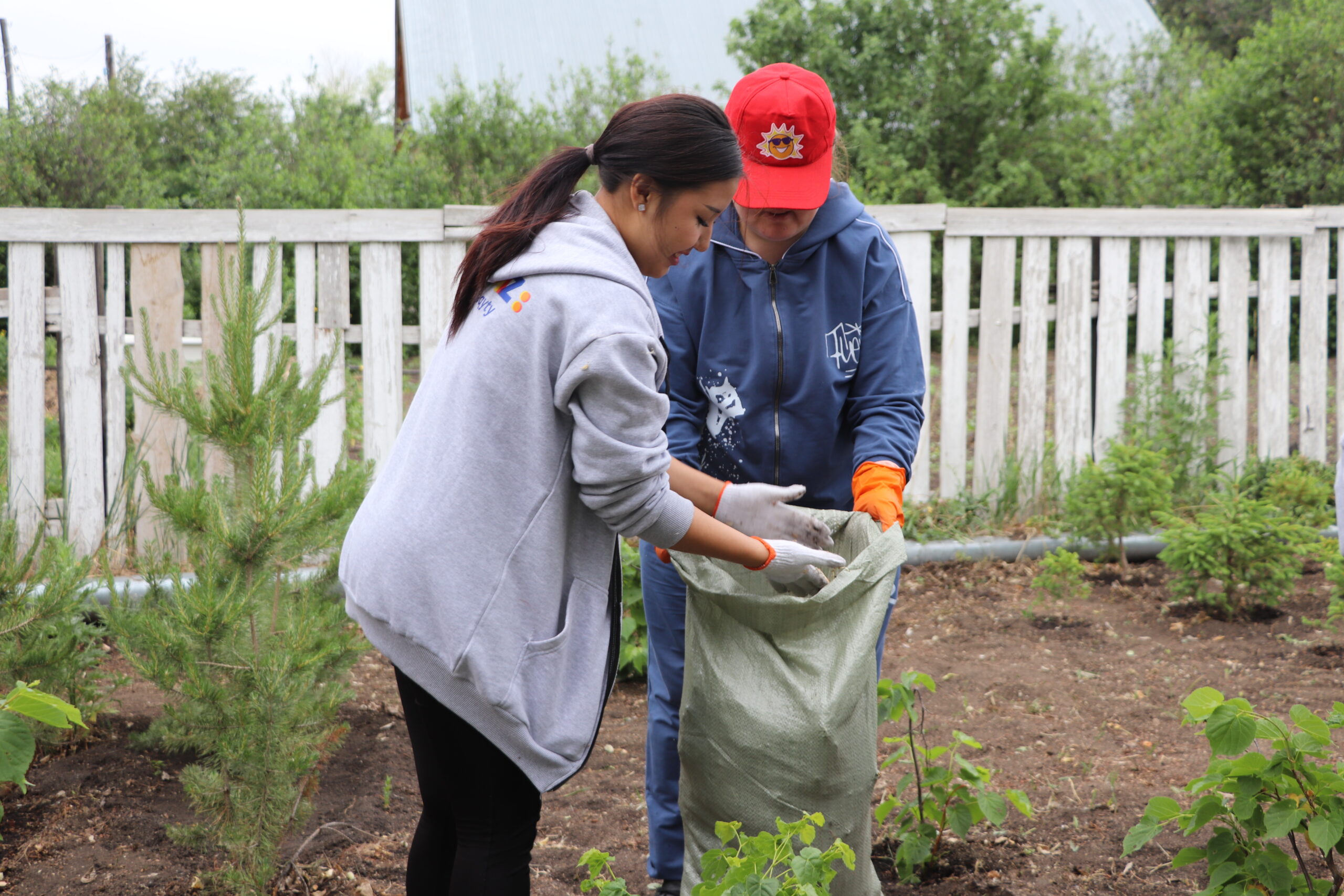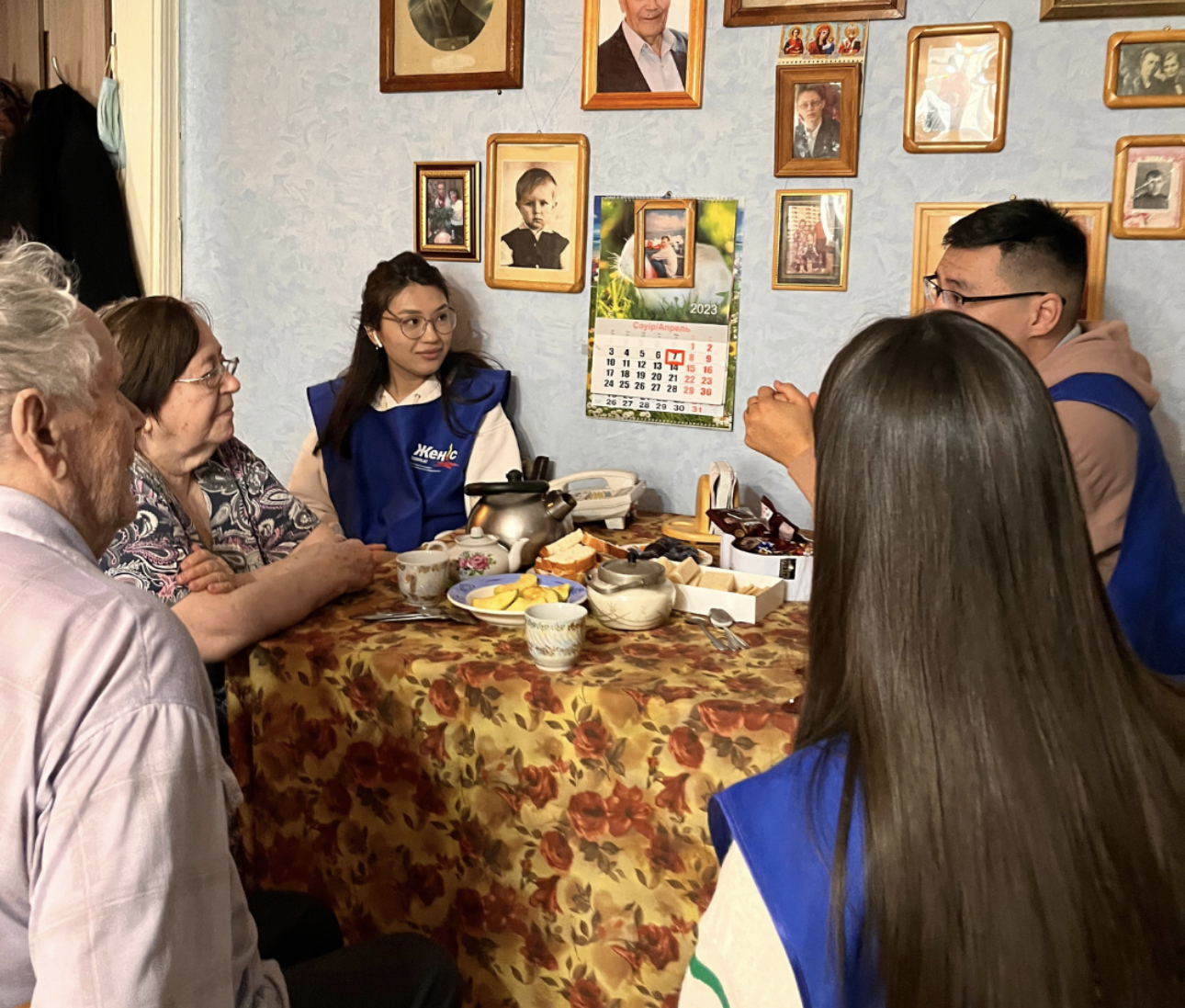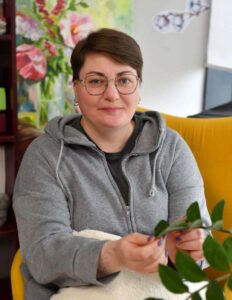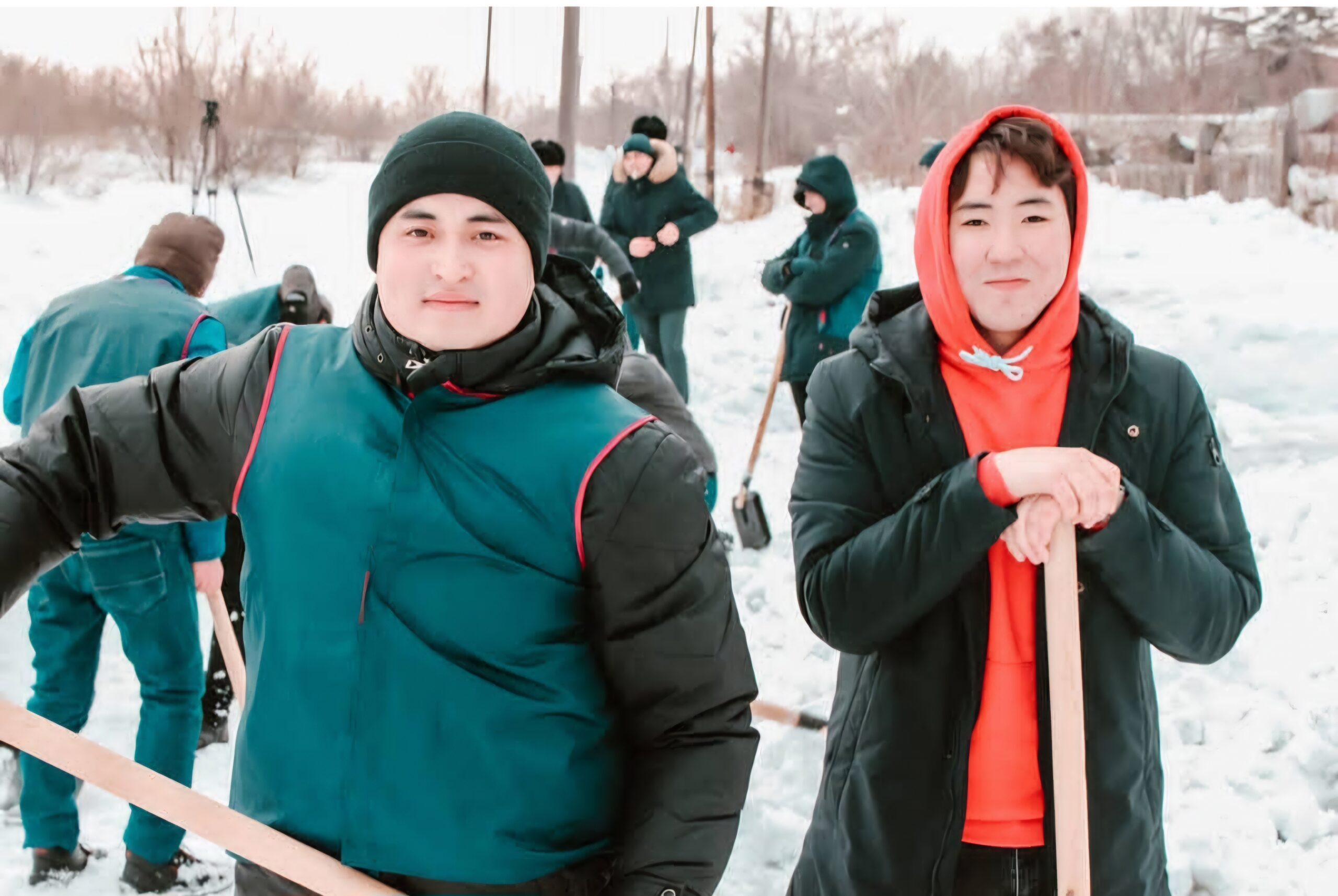ASTANA – Kazakhstan celebrates International Volunteer Day on Dec. 5, honoring the invaluable contributions of volunteers to society. From addressing urgent humanitarian needs to advancing charitable and social initiatives, volunteers embody the spirit of selflessness and community.

Volunteers during ecological campaign. Photo credit: National Volunteer Network
This global observance, established by the UN General Assembly in 1985, recognizes the transformative contributions of volunteerism to societal well-being and the improvement of lives worldwide.
A tradition rooted in history
Volunteerism in Kazakhstan has deep historical roots, emerging through the tradition of Asar, a unique form of collective mutual aid developed during the nomadic era. Asar was a communal response to the unpredictability of life, uniting people to rebuild homes destroyed by natural disasters, restore herds, or plow new land. It was equally present during joyful occasions, such as helping young families settle into new homes and start their independent lives.

The Victory Initiative, during which volunteers visit Second World War veterans to provide social assistance. Photo credit: National Volunteer Network
Today, the principles of volunteerism resonate deeply with Kazakhstan’s national ethos of mutual support and community spirit. Volunteers tackle pressing social issues, drive public initiatives, and reinforce a shared sense of solidarity.
In 2020, President Kassym-Jomart Tokayev declared the Year of Volunteers, marking a significant milestone in the nation’s volunteer movement. Public awareness campaigns and events attracted new participants, strengthening the volunteer corps.

Woollen sets for premature babies, made by 28 Loops volunteers. Photo credit: 28 Loops Instagram page
Kazakhstan became a global hub for volunteerism in 2022 and 2023, hosting the Central Asian and International Volunteer Forums, which attracted over 1,000 volunteers from 34 countries. This momentum continues in 2024, designated as the Year of Volunteer Movements within the Commonwealth of Independent States (CIS). Kazakhstan has already organized around 50 volunteer events in the year’s first half.
The country’s commitment to volunteerism extended further when the UN General Assembly supported a proposal by Kazakhstan’s President to designate 2026 as the International Year of Volunteers for Sustainable Development.
In 2024, the country also partnered with the United Nations Volunteers (UNV) program and Central Asian countries to release the first State of Volunteering in Central Asia Review. Presented at the UN Headquarters, the report highlighted Kazakhstan’s role as a leader in supporting and advancing volunteerism in the region.
Volunteers at the forefront
Tatyana Mironyuk, an executive director of the National Volunteer Network, emphasized the indispensable role of volunteers.
“Volunteering is a vast renewable resource for addressing global social, economic, and environmental challenges. In crises and emergencies, volunteers are often the first responders,” she told The Astana Times.

Tatyana Mironyuk, an executive director of the National Volunteer Network
During the COVID-19 pandemic, approximately 500,000 Kazakh citizens participated in volunteer activities, delivering over 80,000 food baskets and 4.5 million medical supplies. Volunteers also played a critical role in relief efforts during the country’s spring floods, organizing caravans of mercy and assisting in evacuation and aid distribution.
Mironyuk also highlighted the accessibility of volunteering in Kazakhstan, noting that individuals can participate in various activities—whether full-time, part-time, or on a one-off basis—as long as they have the desire to help without expecting anything in return.
According to the National Volunteer Network, Kazakhstan’s volunteer movement has seen remarkable growth. From 117,000 volunteers in 2021, the number grew to 240,000 by early 2024.
Inspiring stories of Kazakh volunteers
Serzhan Shaikhymov from Karaganda exemplifies the transformative power of volunteerism. At 16, his first experience as a volunteer during the Expo 2017 in Astana left a lasting impression.
“I worked every day, took every available shift, and participated in every activity I could. This experience introduced me to new people, both locally and internationally, some of whom I still keep in touch with today,” he said.

Shaikhymov (on the right) assists in clearing the area near a resident’s house in the Karaganda Region. Photo credit: Shaikhymov’s personal archieve.
Later, Shaikhymov led a volunteer organization in his city, undertaking initiatives such as assisting nursing homes and orphanages, engaging in environmental projects, and supporting animal shelters. One of his most rewarding efforts was conducting training sessions in schools and universities, inspiring hundreds of young people to join their ranks.
“Through our efforts, we attracted 500-600 volunteers. Volunteering not only allowed me to give back but also brought me lifelong connections, including meeting my wife, who was also a volunteer,” he said.
Although Shaikhymov has since pursued other endeavors, he remains a dedicated advocate for volunteerism.
“By my example, I want to show the next generation, including my children, that volunteers are people with huge hearts—selfless and kind, ready to lend a helping hand to those in need,” he said.
Another initiative born in Kazakhstan has touched lives globally. Since 2012, 28 Loops, founded by Karla Noor, has provided woolen sets for premature babies, ensuring they stay warm and receive gentle stimulation for growth. This movement has united 6,000 volunteers across 14 countries.
“Our initiative helps premature babies born as small as 500 grams. Our volunteers knit woolen sets made from 100% wool, which help these infants stay warm and take their first breath,” said Noor.
These woolen garments play a crucial role in maintaining the optimal temperature for premature babies in incubators, supporting their fragile systems. Wool’s unique properties provide warmth, stimulate the skin, and act as a natural massage, enhancing motor development in infants.
“I believe that volunteerism shouldn’t just be an individual act. It should be a shared value that defines our community. The future of the next generations depends on the kindness and support we extend today,” she added.
